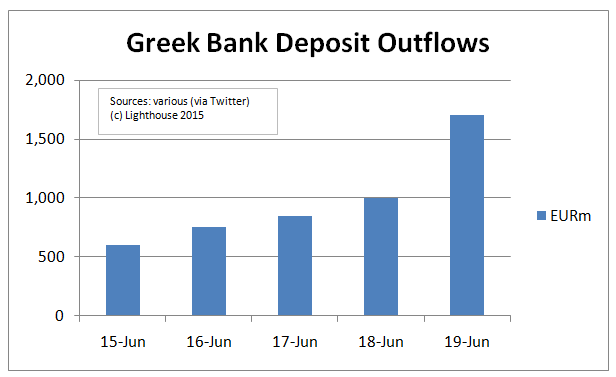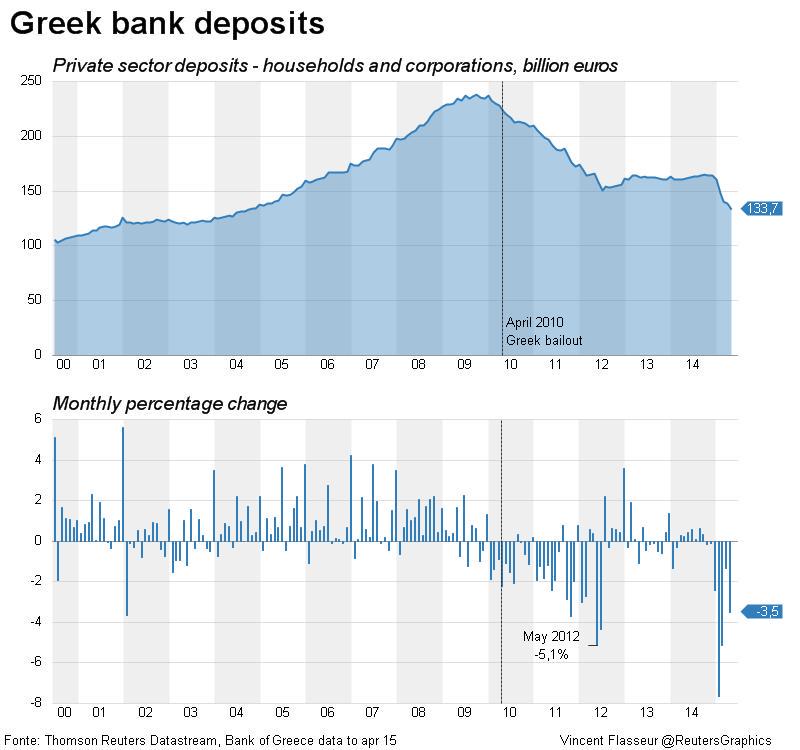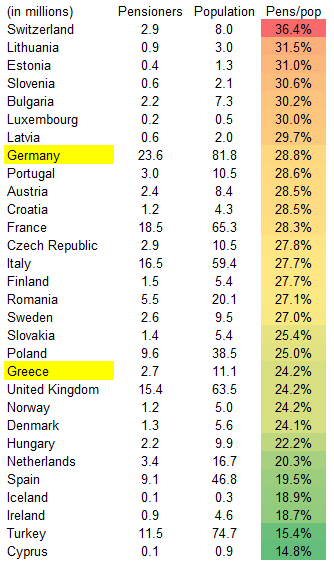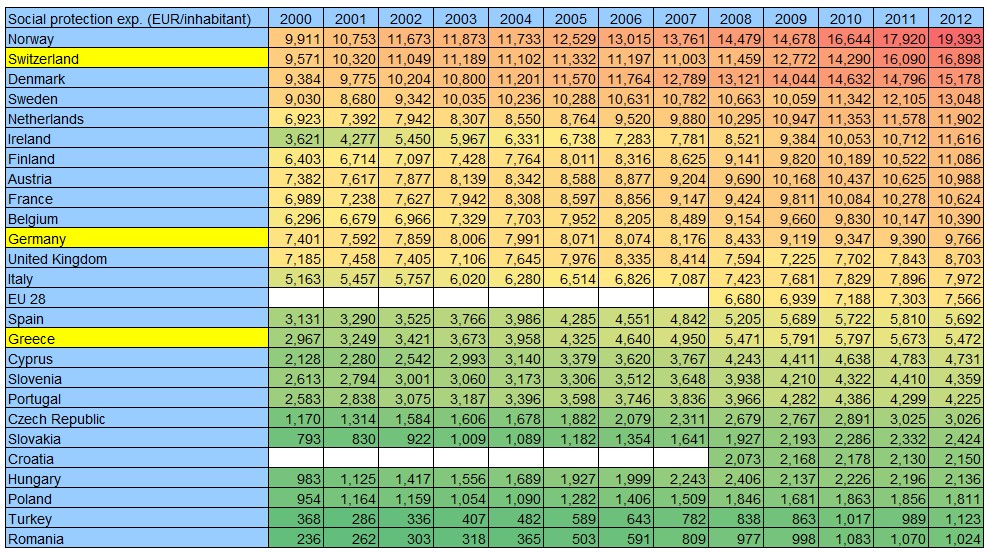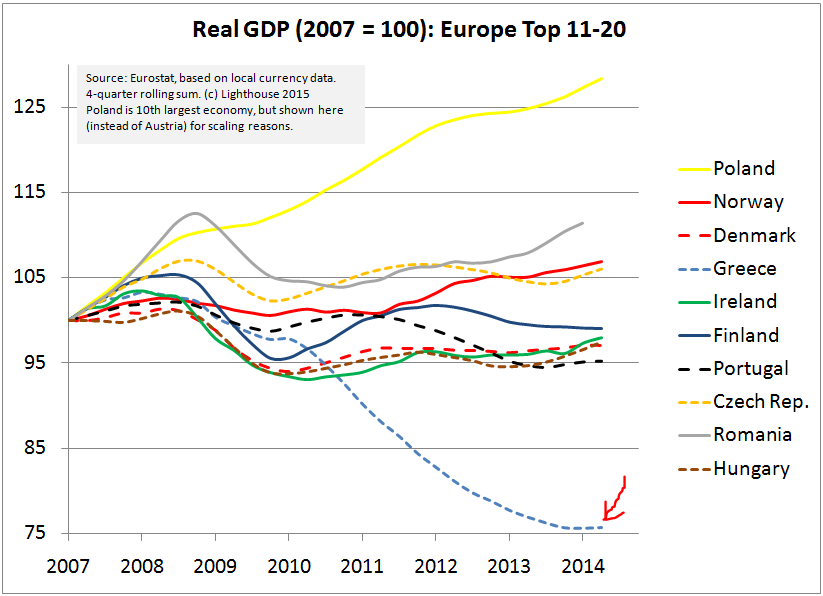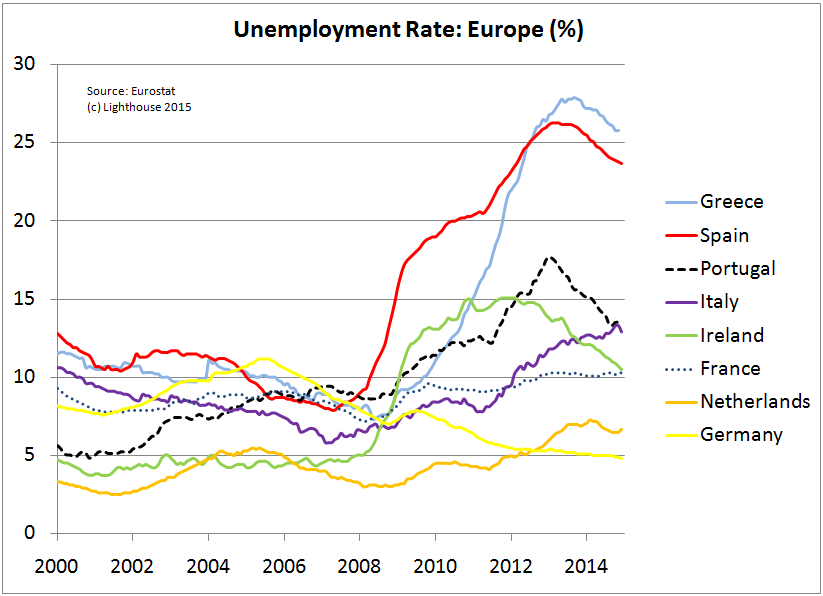The Wall Street Journal called recent deposit outflows from Greek banks a “bank jog” (as opposed to “bank run”). A bank run usually leads to affected banks running out of cash quickly (within days or hours). The Greek banking system has been bleeding deposits since years. But the movement has been accelerating last week:
If those numbers (from “sources” in Greek banking industry) are correct, almost EUR 5bn left during last week. At this pace, 20bn could leave within a month, the most ever:
What are the chances of avoiding a default and exit from the Euro?
Germany has had no problem sending EUR 100bn a year for 20 years to former East-German states to pay for reunification. Among German states, a “Laenderfinanzausgleich” regulates transfer payments from rich states to poorer states. Fortunes change, as Bavaria once was a recipient of payments. It has now turned into a net payer. In the US, some states are net payers, others are net receivers of federal funds. A union of any kind can only survive if the stronger are ready to support the weak.
German tabloid BILD is constantly trying to pitch public opinion against Greece. Recent examples:
(“Why don’t you sell your islands, you bankrupt Greeks … and the Acropolis, too!”
(BILD readers are encouraged to take selfies with the headline “No! No more billions for those grabby Greeks!” and email / send it online)
BILD is trying to convey that Germans are required to pay for lavish Greek early retirement.
So I searched for evidence for those claims. If a lot of Greek workers retired early, there should be an elevated level of retirees compared to overall population. The facts:
Germany has a much higher proportion of pensioners than Greece (average population age, while omitted here, even works to the detriment of Greeks).
So are Greek pension payments more generous than others? Here are “social protection expenses” from Eurostat:
Again, Greece scores below average and way below Germany. If elevated social costs per inhabitant were detrimental, Switzerland should be in a bad shape.
Affordability is, of course, a completely different question. If your real GDP declines by 25% and your unemployment rate goes above 25% (leading to less taxes paid and higher expenses) any government budget would become unhinged.
Yes, Greek pension payments may not be sustainable on the basis of current government revenue, but this is not a function of too generous pension payments. It is a function of a severely shrinking economy, sucked dry by extreme austerity.
Why would some media love to see Greece (and the Euro) fail? A successful Euro would marginalize the British Pound further. Today, the European Union of 28 countries counts 506 million inhabitants – 57% more than the United States (321 million). Combined with cheap Russian gas the resulting economic powerhouse could threaten the dominance of the US.
ECB and IMF had hoped that a run on Greek banks would turn violent, possibly lead to military deployment and fall of the current government. But, so far, the plan has not worked.
The situation is on the knife’s edge. I don’t think the Greek government will blink. So unless the EU, ECB & IMF blink, Greece will limp along, and simply not pay the EUR 1.6bn due to the IMF on June 30. There is nothing the creditors could do (unless they want to begin confiscating Greek assets abroad). I will be the first rebellion of a Euro-zone member against Troika-prescribed austerity. This will lead to envy in other countries. Given mismanagement of the debt crisis from the very beginning, European institutions have only themselves to blame.

